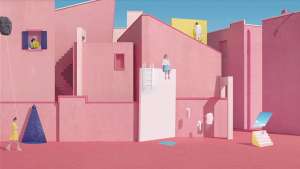From the Series
Comic artists Moray Rhoda and Ray Whitcher are on a mission to get more South African-flavoured stories told by local creators. Readers, they say, are ready.
“People are hungry for comics,” says Whitcher, an animator and illustrator in Joburg who teaches multimedia design at the Greenside Design Centre. “ They didn’t know that they [South African comics] existed… People are like ‘Wow!’ They have been going ‘I didn’t know that this stuff was so good!’ People think because its South African its bad.”
Whitcher and Rhoda are part of SA Comics, a collective of independent South African artists producing cartoons and comics, both printed and online. “We wanted to bring comics to an audience that might not neccessairly be familiar with it but would respect the medium,” says Whitcher.
They are part of a larger burgeoning of creativity within the South African comics industry that is exploring new storylines, themes and characters more reflective of our current-day society. There have even been gay squirrels and streetwise skhokhos (tough guy).
Rhoda, the creator behind Velocity, a collaborative graphic novel anthology created by South African and Australian comic book artists is generally recognised as the “godfather” of local comics because of his longstanding involvement. Based in Cape Town, Rhoda has been involved in the local comics scene since 2000 when he founded the Igubu Comics Collective. When Igubu disbanded, Rhoda began art directing Media 24’s Beat Comics studio, producing the comics Unicity, Mzansi Beats and Kasiwash.
Stalwart supporters of the cause, they offer advice to other comics entering the industry.
“Lets hear some South African stories because we don’t have enough. Everyone is trying to be American. We know the American formula works,” says Whitcher. “I want to see something about tokoloshes, I want to see something about mine dumps.”
Rhoda advises youngsters not to give up: “The first comic you’re going to make is not going to be that good. But you have to keep making stuff and accept that people are going to say that it’s not really all that good.”
But the interview ends on a high note with Rhoda giving his definition of creativity. He says, “creativity is being able to look at a blank page and see the possibilities on that page.”








